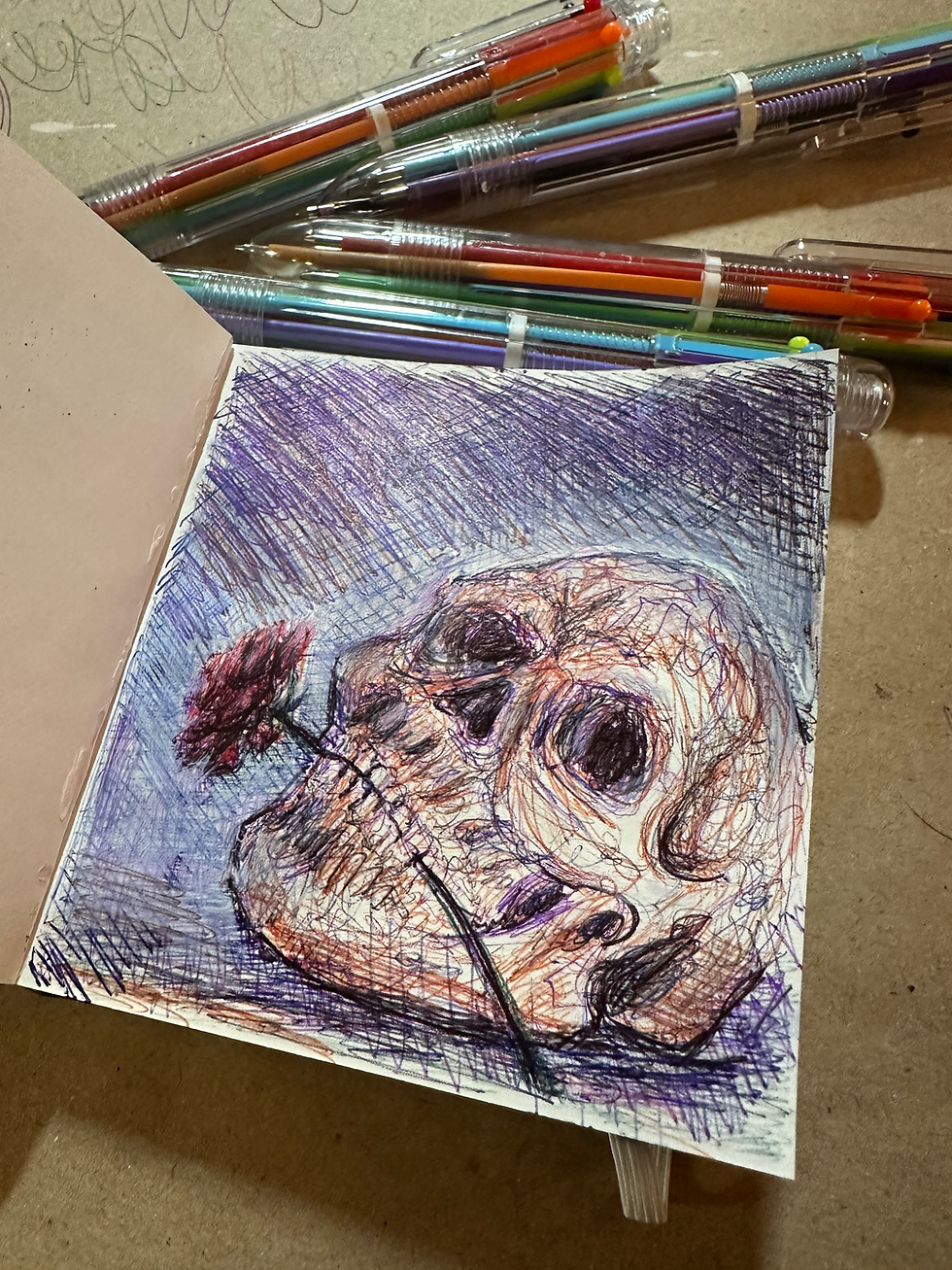Dehumanization: Our One True Enemy
- tmichaelniemanart
- Feb 23
- 3 min read
Updated: Feb 24

In today’s society, dehumanization—the process of denying the humanity of others—is a pervasive issue with profound consequences. Dehumanization is a consequential social-cognitive phenomenon. Targets of dehumanization are perceived to be less worthy of empathy and moral care, legitimizing acts of violence toward them.

According to Albert Bandura's theory on the matter "dehumanization" is considered a key mechanism within his concept of "moral disengagement," where individuals can essentially disengage from their own moral standards by perceiving others as less than human, allowing them to justify harmful actions without experiencing guilt or self-reproach; essentially, viewing victims as not fully human enables perpetrators to commit acts of violence or aggression with less moral consequence
Whether manifesting through systemic injustice, destruction of property rights, making generalizations based upon superficial factors, digital anonymity, polarized political discourse, disparaging someone (or putting them on a pedestal) dehumanization undermines empathy, erodes social cohesion, and fosters environments ripe for conflict and cruelty.
Understanding the causes and consequences of this phenomenon is essential to fostering a more prosperous, inclusive and compassionate society.
Dehumanization occurs when individuals or groups are perceived as less than human, stripped of the qualities that elicit empathy and moral consideration. It is often rooted in stereotypes, prejudice, and fear of the "other." I happen to be of the opinion that all to often today dehumanization arises due to projection and envy. Psychologists note that dehumanization involves viewing people as either animalistic (crude, uncivilized) or mechanistic (emotionless, object-like). This perception makes it easier to justify mistreatment, discrimination, and even violence.
Historically, dehumanization has been at the heart of atrocities such as slavery, genocide, assassination attempts and war. In each case, dehumanizing narratives allowed perpetrators to rationalize their actions. In modern society, while the forms of dehumanization may be more subtle, its effects are no less damaging.
Erosion of Empathy and Compassion
One of the most dangerous consequences of dehumanization is the erosion of empathy. When individuals are seen as less than human, it becomes easier to dismiss their pain, suffering, and needs. This lack of empathy contributes to social indifference and apathy, weakening community bonds. For example, stigmatizing language around addiction, homelessness, or immigration dehumanizes individuals, leading to policies that prioritize punishment over support and rehabilitation.
Dehumanization is a powerful tool for justifying violence and oppression. Throughout history, propaganda has portrayed marginalized groups as subhuman or threatening, creating a moral distance that facilitates cruelty. Dehumanization has also led to violence against people who have been accused of having privilege (whether their temporary position in society was fairly earned or not) In today’s society, dehumanizing rhetoric in political discourse can lead to hate crimes, social exclusion, and even state-sanctioned violence.
Polarization, Balkanization and Social Fragmentation
In a highly polarized society, dehumanization intensifies divisions and inhibits dialogue. When political opponents are depicted as evil or morally inferior, constructive debate becomes impossible. This demonization fuels echo chambers, where individuals are only exposed to information that reinforces their biases, deepening ideological divides. As a result, societies become fragmented, with citizens unable to collaborate or find common ground.
The rise of social media and digital communication has amplified dehumanization by enabling anonymity. Online platforms often decontextualize individuals, reducing them to avatars or usernames. This digital distance allows for dehumanizing language and behavior without immediate consequences. Cyberbullying, trolling, and hate speech are symptoms of this phenomenon, contributing to mental health crises and social alienation.
Combating Dehumanization
Education plays a crucial role in combating dehumanization. By promoting historical awareness and teaching critical thinking, societies can inoculate individuals against propaganda and stereotypes. Educational initiatives that emphasize shared humanity, empathy, and cultural appreciation can bridge divides and reduce prejudice.
Media Literacy and Responsible Communication
Media literacy is essential. Encouraging critical engagement with news and social media can help individuals recognize dehumanizing narratives and challenge them. It can also help identify potential mishandling of conflicts of interests among individuals involved in the media. Furthermore, public figures, journalists, and influencers should be held accountable for rhetoric that dehumanizes others, promoting more respectful dialogue.
Fostering Empathy and Humanity is the antidote to dehumanization. Initiatives that promote human connection, such as community dialogues, storytelling, and cross-cultural exchanges, can help break down stereotypes and build empathy. By emphasizing shared experiences and emotions, these interactions humanize those who are often portrayed as “other.”
Conclusion
The perils of dehumanization are profound, affecting individuals, communities, and societies at large. It destroys trust, kills connections, erodes empathy, justifies violence, intensifies polarization, and degrades public discourse. However, by fostering awareness, promoting responsible communication, and emphasizing our shared humanity, society can resist the corrosive effects of dehumanization.
In a world increasingly divided by politics, culture, and identity, the challenge is to remember our common humanity. Combating dehumanization is not merely about changing perceptions—it is about creating a society that values dignity, respect, and compassion for all.
Comments